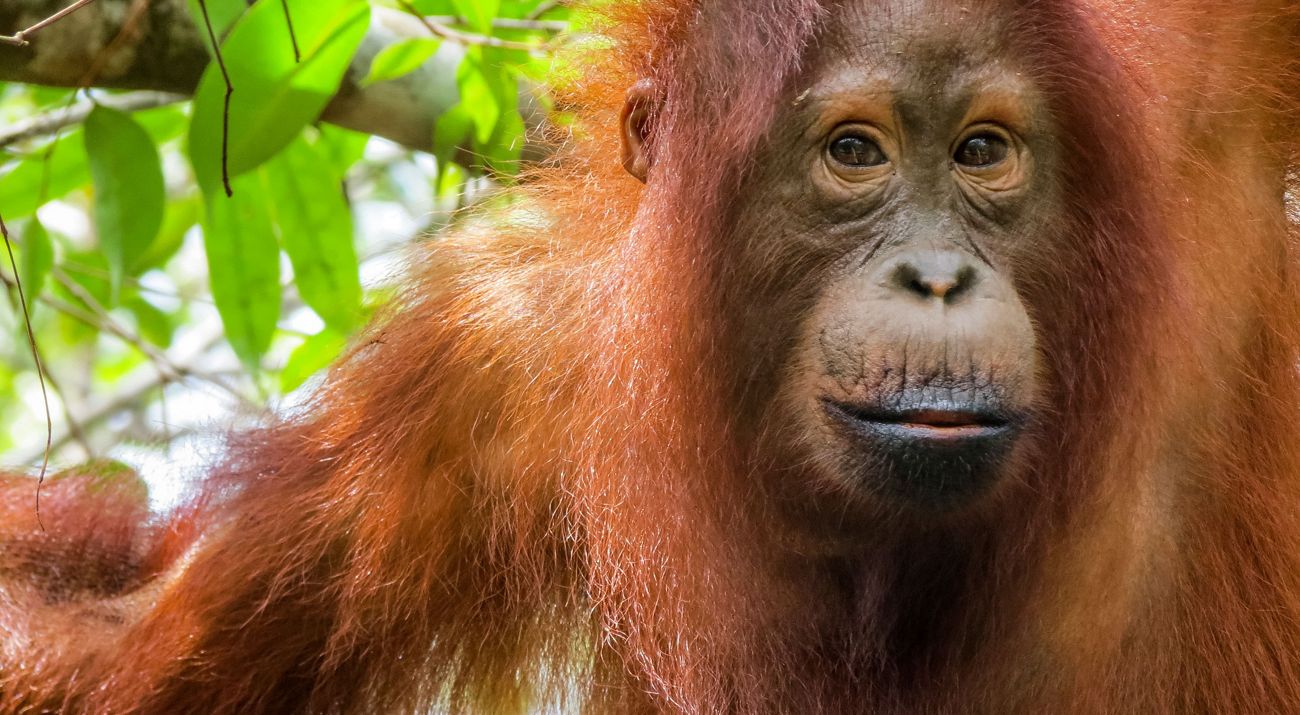
Meet the Orangutan
These reddish apes are large tree climbers that play a key role in the Asian forests where they live. There are two species of orangutan: Bornean and Sumatran. These two types are identified mainly by where they live, but there are slight social and physical differences, including facial hair and social interaction. Bornean orangutans are semi-solitary. Both species survive by eating mainly fruit, but also occasionally other plants and insects. Orangutans can live up to 50 years, but they have a relatively low reproductive rate because females only give birth once every 5-10 years.
Orangutans help forest health by acting as the world’s largest seed dispersers. They cover large areas as they forage for food, an additional risk in fragmented habitat. They spend most of their time in trees. That’s where they thrive. But when the habitat changes, the orangutans are forced to the ground.
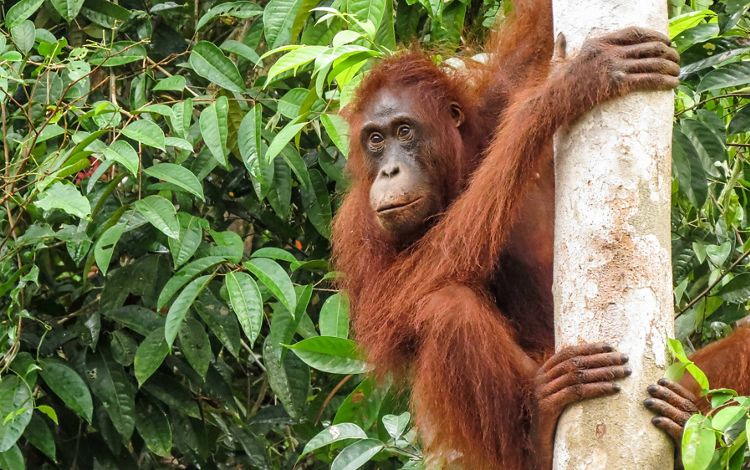
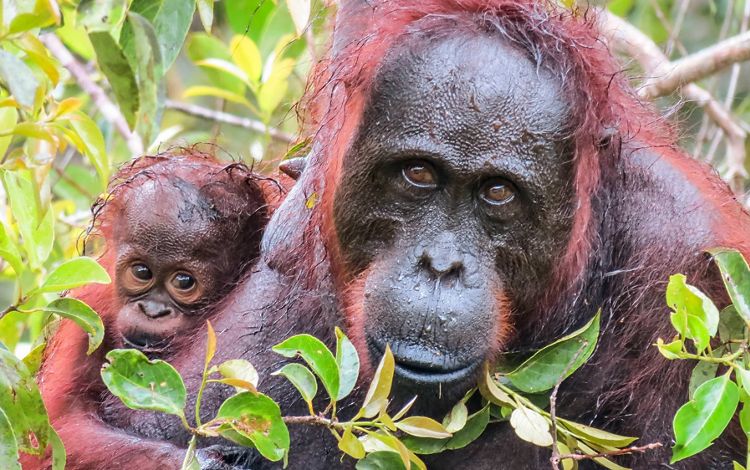
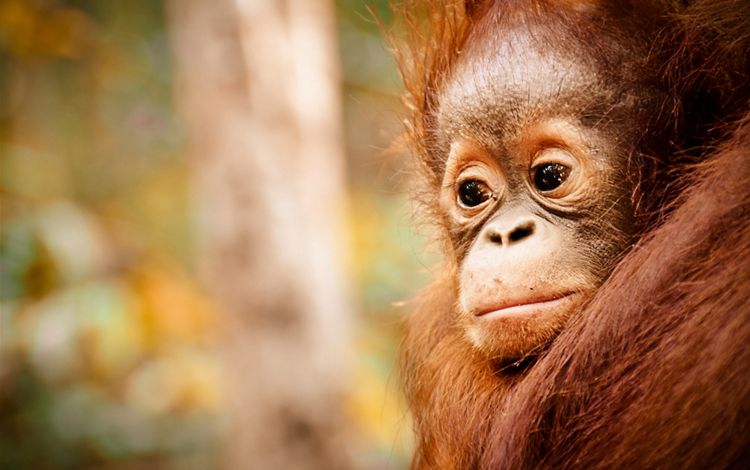
Protecting the Orangutan
Orangutans are among the rarest primates on Earth. Faced with deforestation, poaching, the illegal pet trade and forest fires, orangutan populations have reached a critical point. Since 1960, their populations have declined by 50 percent. Scientists project their populations will fall another 22 percent by 2025.
Kalimantan has some of the largest orangutan populations left, but that habitat is highly at risk. From 2008 to 2010, the Conservancy collaborated with 19 other NGOs to conduct a quick ground survey – primarily counting orangutan nests, since the apes themselves can be difficult to spot – and interviewing community members from 687 villages. From this work, it was determined that a staggering 78 percent of the orangutan population in Kalimantan lives outside protected areas.
Unprotected lands in this region are often subject to both legal and illegal logging. That’s why TNC is working with forestry companies to test and implement land management practices that lessen impacts to forest habitat and reduce carbon emissions while maintaining profits. Conservationists also work with these companies to develop practices to conserve orangutans so that the large landscape outside protected areas can continue to provide a home for orangutans.
Additionally, we are:
Working with forestry and palm oil companies to test and implement land management practices that lessen impacts to forest habitat and reduce carbon emissions while maintaining profits
Helping palm oil companies reduce conflicts with orangutans that stray onto plantation lands
Providing tools for local communities to work with governments to protect their village forests
Assisting communities to develop forest-friendly livelihoods such as sustainable agriculture and sale of forest products like honey
Collaborating with scientific institutions to research and monitor orangutans and their habitat
You can help too. The only way for orangutans to avoid extinction is for people like you to intervene, take action, and encourage others to act.
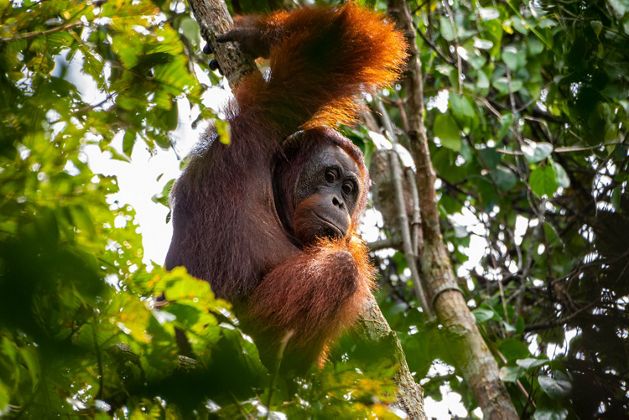
Get Involved in Conservation
Get monthly nature news and tips to help.